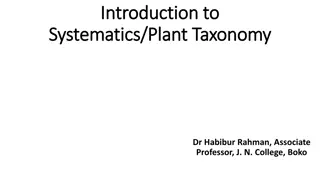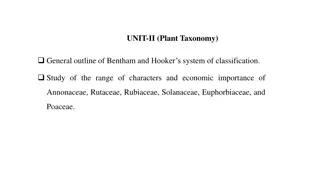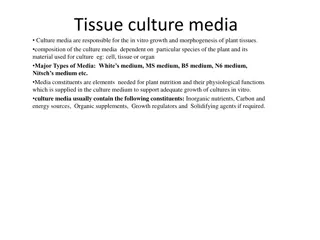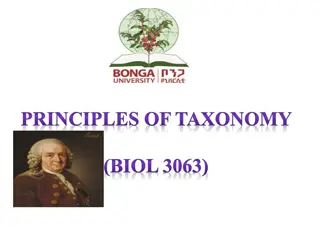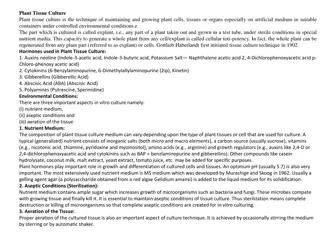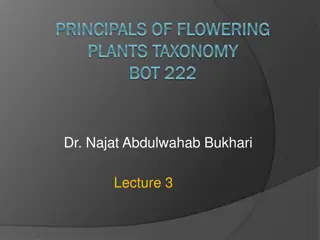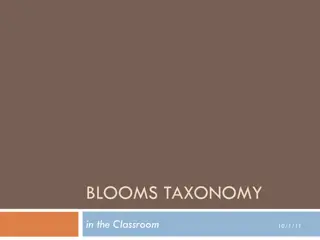Plant Taxonomy: Description, Identification, Nomenclature, Classification
Plant taxonomy is a crucial field encompassing description, identification, nomenclature, and classification, forming a significant part of Plant Systematics. It involves arranging taxa in order to catalog and establish relationships. Taxa are groups of organisms classified at specific ranks, utilizing various characters like morphological data and reproductive structures. Different classification systems include artificial and natural classifications, as well as phyletic and cladistic systems. Identification methods range from taxonomic keys to image and specimen comparisons. Plant habit refers to the general form of plants, encompassing terms like herbaceous, woody, vine, shrub, subshrub, and trees. Nomenclature involves the formal naming of taxa according to standardized systems.
Download Presentation

Please find below an Image/Link to download the presentation.
The content on the website is provided AS IS for your information and personal use only. It may not be sold, licensed, or shared on other websites without obtaining consent from the author.If you encounter any issues during the download, it is possible that the publisher has removed the file from their server.
You are allowed to download the files provided on this website for personal or commercial use, subject to the condition that they are used lawfully. All files are the property of their respective owners.
The content on the website is provided AS IS for your information and personal use only. It may not be sold, licensed, or shared on other websites without obtaining consent from the author.
E N D
Presentation Transcript
Plant taxonomy It s a field of science that includes Description, Identification, Nomenclature, and Classification ( the mnemonic DINC for short). Which is considered a major part of Plant Systematic.
Classification: Its the arrangement of taxa into some type of order, the purpose of this field is to provide a system for cataloguing and expressing relationships between these taxa. **Taxon: It s a group of organisms typically treated at a given rank, ex. Magnolio phyta is a taxon placed on the rank of phylum.
Characters used for plant classification 1- Morphological data :- a/ Micromorphology b/ Gross morphology 2- Presence or absence of certain tissues and vegetative organs. 3- Similarity and dissimilarity of reproductive structure.
Classification Systems : - Artificial classification Natural classification - Phyletic or Evolutionary system of classificationCladistic classification Cladistic classification system
Identification It s the process of associating an unknown taxon with a known one or recognizing, plant taxa can be identified in many ways: 1/ Taxonomic Keys 2/ Written Description 3/ Specimen comparison 4/ Image comparison Description:- It s the assignment of features to a taxon, these features are called characters
Plant habit It refers to the general form of plant, including a variety of terms: 1- Herbaceous plant 2- Woody plants 3- Vine 4- Shrub 5- Subshrub 6- Trees
Nomenclature :- It s the formal naming of taxa according to some standardized systems. For plants, algae, and fungi; the rules and regulations for naming them are provided by the International






